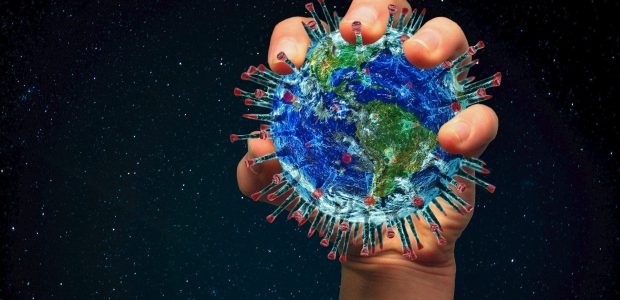
The COVID-19 pandemic has had a profound impact on the world, affecting every aspect of society, from healthcare to the economy. The virus, caused by the novel coronavirus, has spread rapidly across the globe, leading to widespread illness, death, and economic disruption. Here’s a closer look at the crisis and what we can do to move forward.
The Science of COVID-19
COVID-19 is caused by the SARS-CoV-2 virus, which was first identified in Wuhan, China in December 2019. The virus is primarily spread through respiratory droplets, which are produced when an infected person talks, coughs, or sneezes. It can also be spread by touching a surface contaminated with the virus and then touching one’s mouth, nose, or eyes. The incubation period for COVID-19 is typically 2-14 days, with symptoms ranging from mild to severe. Common symptoms include fever, cough, and shortness of breath, while severe cases can lead to pneumonia and respiratory failure.
The Impact of COVID-19
The impact of COVID-19 has been far-reaching, affecting virtually every aspect of society. The healthcare system has been strained as hospitals and clinics have been overwhelmed with patients, leading to shortages of essential supplies such as personal protective equipment (PPE) and ventilators. The pandemic has also had a significant economic impact, with many businesses forced to close and millions of people losing their jobs. The pandemic has also highlighted existing inequalities, with marginalized communities disproportionately affected by the virus and its economic fallout.
Government Response to COVID-19
Governments around the world have responded to the COVID-19 pandemic in a variety of ways, with some implementing strict lockdowns and others taking a more laissez-faire approach. The effectiveness of these measures has varied, with some countries experiencing lower infection and mortality rates than others. However, most experts agree that a combination of measures, including testing and tracing, social distancing, and vaccination, is the best way to contain the spread of the virus and reduce its impact.
Vaccines and COVID-19
The development and distribution of vaccines has been a major focus in the fight against COVID-19. Multiple vaccines have been developed and authorized for emergency use by regulatory agencies around the world, including the Pfizer-BioNTech, Moderna, and Johnson & Johnson vaccines in the United States. These vaccines have been shown to be highly effective in preventing illness and hospitalization from COVID-19, and have been administered to millions of people worldwide. However, vaccine hesitancy and distribution challenges have slowed the rollout of vaccines in some countries, leading to continued spread of the virus.
Moving Forward
As the world continues to grapple with the COVID-19 pandemic, there are several steps that individuals and governments can take to move forward. First and foremost, it is crucial to continue following public health guidelines, including wearing masks, social distancing, and practicing good hand hygiene. Vaccination is also a critical tool in the fight against COVID-19, and efforts should be made to increase vaccine uptake and distribution.
In addition to these measures, there is a need for greater investment in public health infrastructure and pandemic preparedness. The COVID-19 pandemic has exposed weaknesses in healthcare systems around the world, and there is a need for increased funding and resources to ensure that countries are better equipped to respond to future pandemics. There is also a need for greater international cooperation and coordination, as the pandemic has shown that viruses do not respect national borders and that a global response is necessary to effectively combat the spread of disease.
Conclusion
The COVID-19 pandemic has been a profound and unprecedented crisis that has affected
